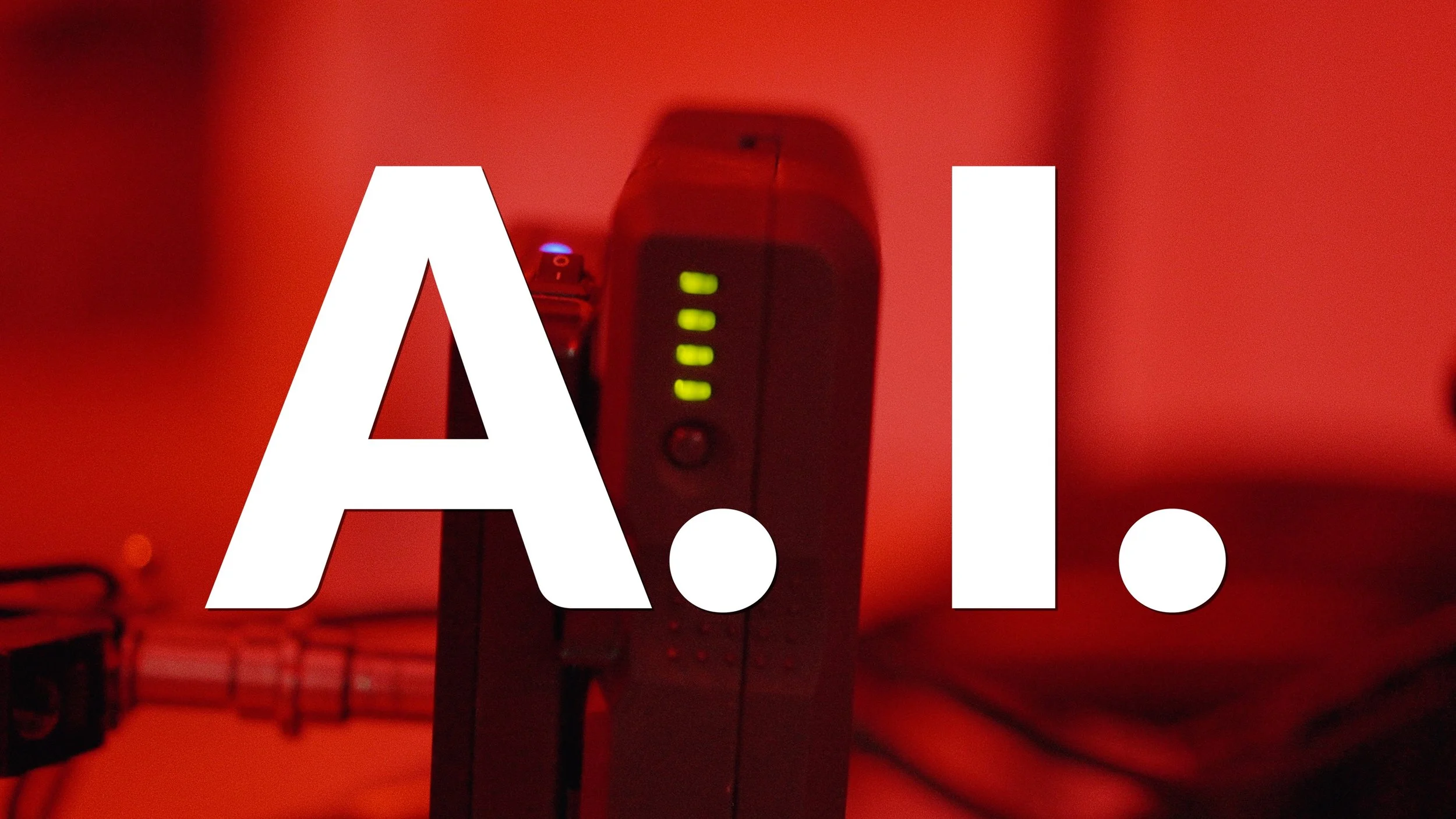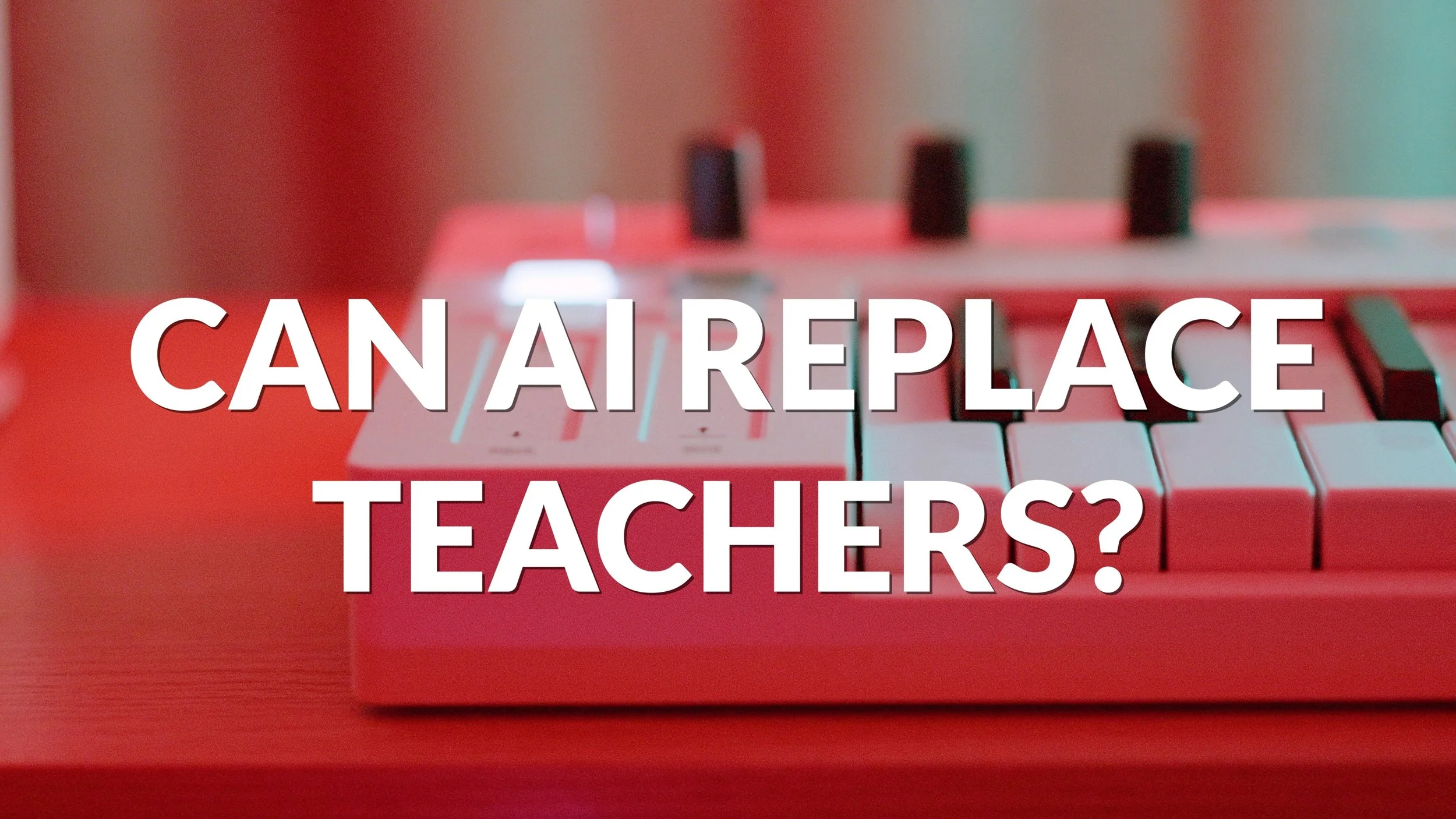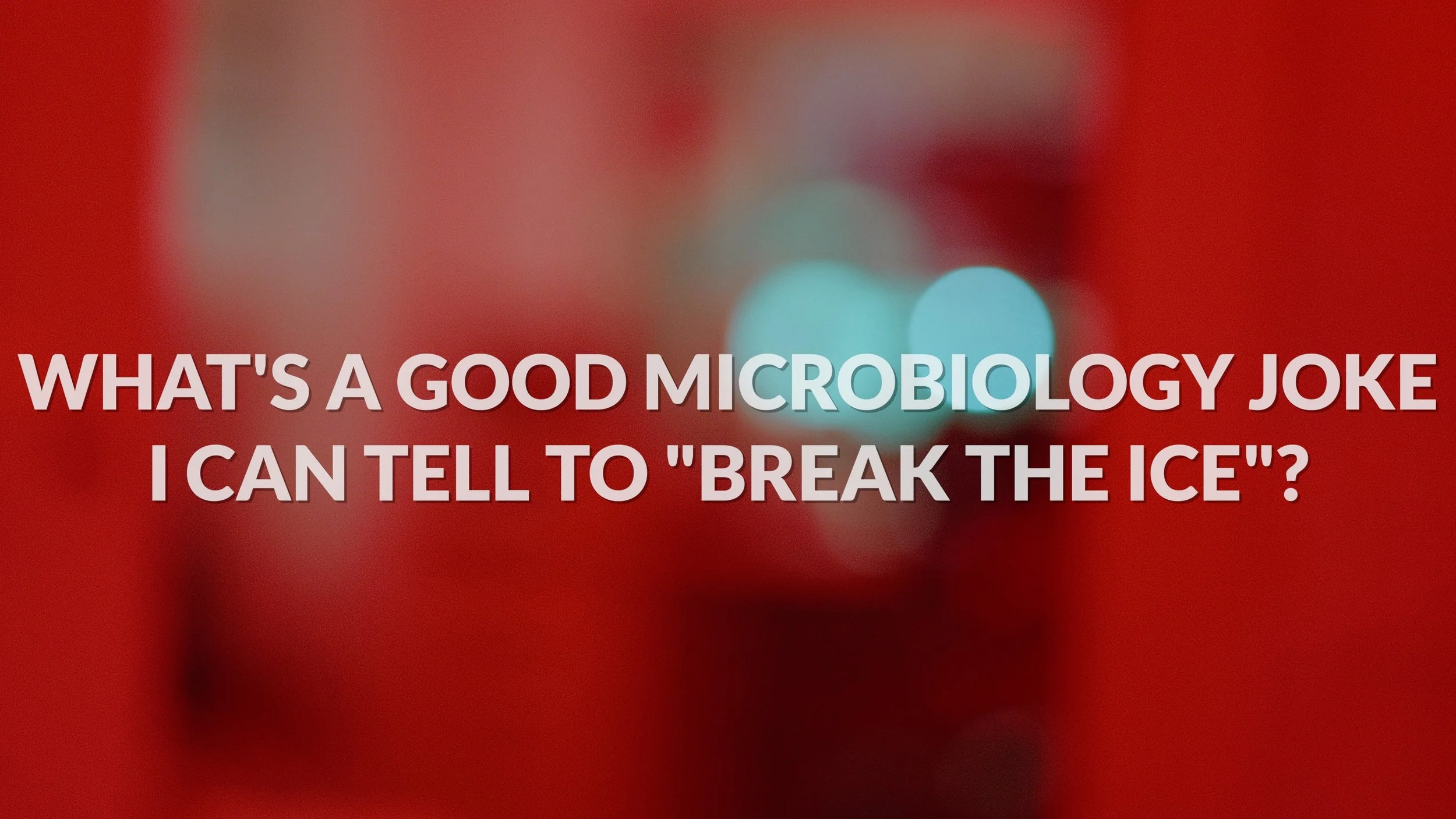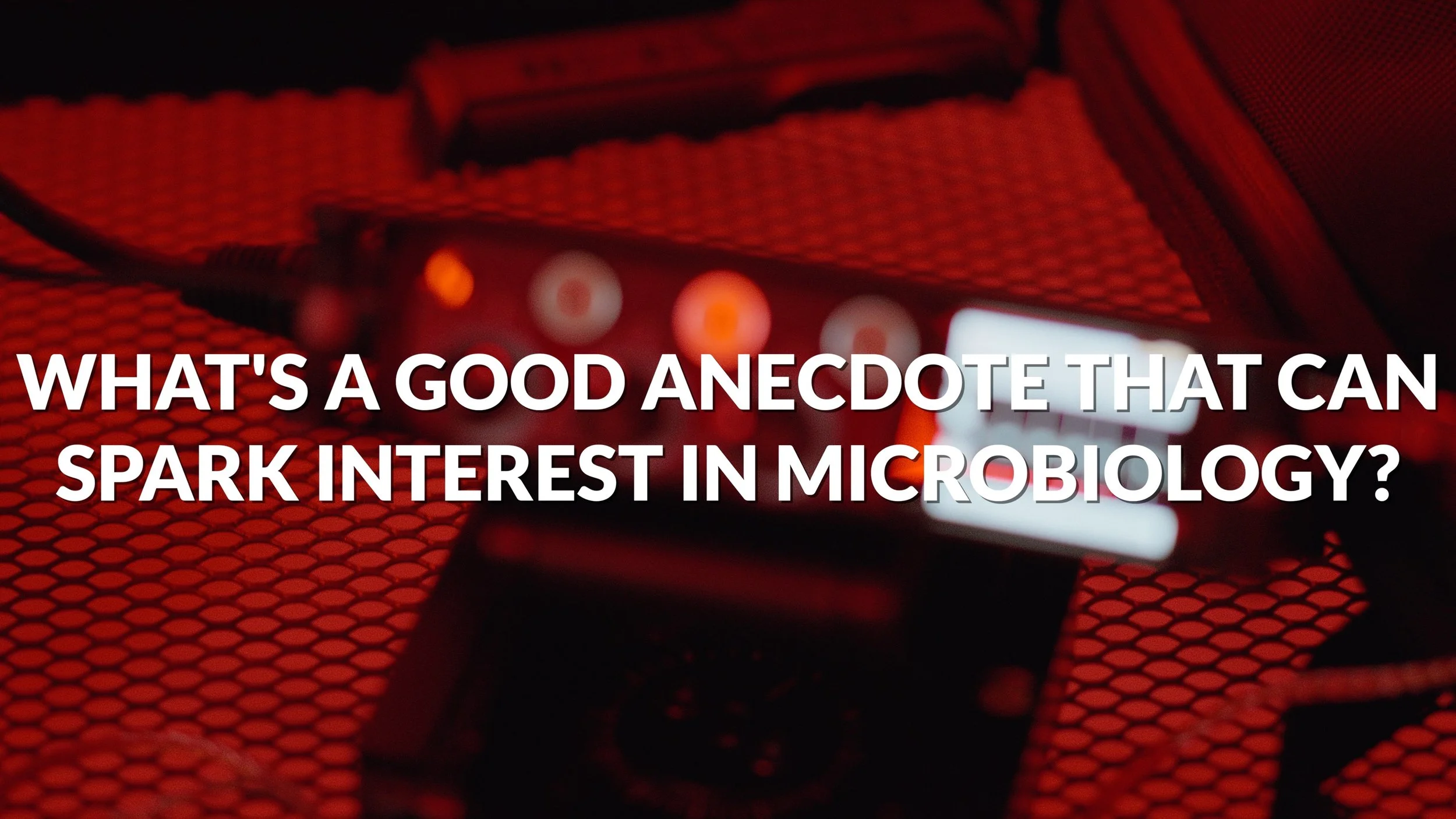The Takeover
The “bombshell” that’s been a long time coming is that artificial intelligence is becoming so good, natural, and life-like, that there are large chunks of our our jobs that can be done by AI. All my colleagues in academia are focusing on the “death of the essay”, and how students can use the platform to cheat and generate pre-written work that’s not their own.
Sure these are important conversations, but am I the only the one thinking selfishly here? About the inevitable logical conclusion to all of this? Not how AI will be abused by students trying to find loopholes in the system, but that AI will be co-opted by large institutions and then BECOME the system? What I’m trying to say is - are my days numbered? Is my job as a scientist, microbiologist, and college professor, going to be replaced by AI sooner rather than later? Instead of philosophising about it, I’m going to put it to the test and use chat GPT - the current most popular iteration of AI as of December 2022 (if our Robot Overlords are reading this in the future).
I will simply ask it the questions I would ask myself, or what any teacher preparing for a new class heading into a new semester would need to ask of themselves. Let’s see what it comes up with, and open with the biggest question of all:
Round 1: Can AI replace a Microbiology Professor?
Here’s what it says:
“It’s unlikely that AI will be able to replace a microbiology teacher in the near future”.
OK… good news to start…
“While AI technology has advanced significantly in recent years, it is still not capable of replicating the complex process of teaching and guiding students in the way that a human teacher can.”
Again sound like good news, but maybe it’s just trying to butter me up, to throw this humanoid off the scent.
“Additionally teaching is a highly personalised and interactive process that involves creating a learning environment that is conducive to student growth, something that AI is not currently capable of doing”.
“Not currently capable of doing” sounds quite ominous, and again this could be AI’s attempt to trick us into thinking that they are of no threat to any of our livelihoods. So after an ambiguous opening round:
AI: 0
Humanoid: 0
Round 2: Can AI win over students?
I’ve been teaching at University for 15 years, so I have some experience in establishing learning environments (positive or otherwise). The first part of a good learning environment is to establish exactly what your role as the teacher is in the classroom, so let’s see what AI would do to convince students it knows what it’s doing:
“Be well prepared for each lesson and to be able to answer their questions confidently and accurately. You can also show your expertise in the subject matter by sharing relevant personal experiences and knowledge, and by staying up to date on the latest developments in the field. Additionally building a good rapport with your students and creating a positive learning environment can help them trust in your abilities as a teacher”.
OK so all of this is very sensible advice, and it’s exactly what I would do. Preparation and personalisation - we have to make students feel like we’re the textbook come to life, a humanoid interactive guide if you will.
I’m still feeling pretty good about not being replaceable - the expert knowledge that I’ve accrued working for 15 years in science isn’t something that is readily searchable… right?
AI: 0
Humanoid: 1
Round 3: Does AI know what to teach?
Knowing what to cover in the first class is always difficult for new teachers. How much breadth do we cover, to what depth? Let’s see how AI would handle this - which topics would you cover in the first lecture of an introductory microbiology class?
A brief overview of the field and the types of organisms studied such as bacteria, viruses, fungi, and protists.
Microbial Cell structure - cell walls, cell membranes, and organelles.
Microbial metabolism and growth - discussion of different types of metabolism that microbes use to obtain energy and nutrients, respiration, fermentation, photosynthesis.
Microbial diversity and classification - vast diversity of microbial species, and how they can be classified and organised.
Microbial ecology and interactions - how microbes interact with each other and how these interactions can affect the health and functioning of ecosystems.
…this is pretty much topic by topic, exactly what I teach in my first lecture. My expert knowledge of the field, was matched in about 10 seconds by AI, in terms of what to teach. I’ve also been involved in curriculum and program mapping exercises that lasted over 12 months - seems like a little bit of a waste of time in retrospect compared to this.
But wait! There’s a loop hole. What I teach, and indeed the outcomes of those curriculum mapping exercises, as well as textbook outlines and research articles, all are fair game for the AI’s algorithm right? So the work me and my colleagues have done is probably part of the pool of data it’s drawing from. I’ve helped train its dataset to replace me really, but hopefully I’ll stay one step ahead. Scientists and teachers have to create and curate the knowledge, before any algorithm can repackage it as its own. So not great, but seeing as I indirectly fed AI the information to regurgitate, I think a point each is only fair - it’s still anyone’s game…
AI: 1
Humanoid: 2
Round 4: Can AI tell jokes to establish rapport?
Next let’s try and make it a bit more challenging. Everyone says teaching is this ineffable art, blending cognition and creativity, something that no robot can reproduce right? So let’s say I want to break the ice with my students, and tell a joke in my first class:
“Why was the microbiologist cold?”
“Because he left his lab coat in the fridge”
…
…
…
Like all good jokesters though, AI tries to explain the thinking behind the comedy, just in case you didn’t chuckle out aloud immediately:
“This lighthearted joke can help to make your classmates laugh and feel more comfortable in your first lecture together”.
That’s a sentence written by a robot if I’ve ever read one.
AI: 1
Humanoid: 3
Round 5: Can AI make a topic interesting and engaging?
Of course that’s not entirely fair, and the vast majority of teachers are not necessarily the funniest person in the room. “Being funny” is only one of the many tools in an engaging speaker’s toolkit, so this doesn’t quite remove AI from contention of being a good autonomous teacher. Can AI choose an interesting story or anecdote about the field to capture the audience’s imagination?
“The story of Louis Pasteur and his work on the process of pasteurization. Pasteur was a French scientist who is considered one of the founders of modern microbiology. He is best known for his development of the process of pasteurization, which is a method of heating liquids, such as milk, to a high enough temperature to kill off harmful bacteria without altering the taste or nutritional value of the liquid.”
…it’s like it read my mind. Exactly the anecdote I would go with, and do go with, in my very first class. Louis Pasteur is an amazing scientist, ahead of his time by a hundred years at least. If we were to recreate his experiments today, with all the advantages of modern technology, can’t really improve upon the airtight logic and control in his scientific method. Alright, so another point for AI.
AI: 2
Humanoid: 3
Round 6: Can AI design assessment tasks?
What else about my job has creative elements to it - assessment! Surely it takes an expert to know an expert, and assessment is how we judge the value of that knowledge or expertise. Let’s see what AI suggests about authentic assessment tasks in microbiology:
Conducting a lab experiment. Students working in groups to design and carry out a microbiology experiment, such as testing the effect of different antibiotics on bacterial growth.
Writing a research paper on a specific topic in microbiology to present their findings.
Developing a presentation on a specific aspect of microbiology, such as the role of microorganisms in the environment or the importance of antibiotics in medicine.
Creating a poster or infographic: students could create a visual representation of a topic in microbiology, such as the structure of a bacterial cell or different types of microbial infection.
Developing a game or simulation to teach other students about different types of microorganisms or the ways they can be harmful or beneficial.
I can’t deny it, these are really great. I’ve used most of these, but not all of these, and I’d really consider some of these ideas for next semester. It also gives some last minute advice about intentionality in assessment design:
“The key to setting effective authentic assessment is to choose tasks that are engaging, challenging, and help students develop deep understanding, critical thinking and problem solving skills”.
That’s my teaching mantra in a nutshell. It knows me a little too well - I’m quickly losing faith in my inability to be replaced…
AI: 3
Humanoid: 3
Round 7: Can AI solve complex scientific problems?
Alright it’s all tied - my last hail mary, Let’s talk about the higher-order thinking and problem-solving in science. Does AI know how to design experiments to test if a novel protein is involved in a biological process?
Identify the biological process you want to study, and develop a clear hypothesis.
Choose an appropriate model system - cell line, animal model.
Develop a method to manipulate the expression of the novel protein - this could be genetic engineering techniques, or using a drug to inhibit its activity.
Design appropriate controls for your experiment, develop a plan to measure the outcomes - could involve biochemical assays or microscopy.
Run the experiment, record measurements, analyse data.
Check it against the hypothesis, write a report and share your findings.
OK I’m convinced. Everything is spot on, this is exactly the approach to take, everything short of actually going into the lab and doing the experiment. I give up - AI has figured everything out:
AI: 4
Humanoid: 3
So… should I be worried?
What’s my conclusion - can AI replace me as a scientist, professor, and teacher? Well in the interest of self preservation, these questions only represent a sliver of all the things I need to do as part of my job (that didn’t sound insecure at all, right? Right?).
But really other than coming up with good believable humanoid jokes, in the realm of teaching and planning for teaching AI can do everything I can do. Sure it’s not going into the classrooms to interact with students, but for a while there no-one was right…? There’s already enough video footage of me online to splice some deep-fake together, I can just be the avatar for AI-driven regurgitation of key facts and figures about microbiology, which won’t necessarily change that frequently… so maybe in this aspect of my job, I am more replaceable than I thought?
Good thing is I don’t have to guess, because we went through this exact situation very recently. When the first shutdown happened in early 2020, many colleges and universities re-used previous years’ videos and lecture recordings in place of classroom attendance - no-one could leave the house remember? Professors and teachers then managed online discussion boards, answering questions just like the AI platform has done for me today. How did students respond? Absolutely hated it. Almost started a revolution because of this. The human element was missing, and motivation plummeted, as did many of their grades.
As long as people still want connections to other people as part of their study and work, jobs like mine that focus on communicating to others day in and day out won’t go away. They will change and evolve over time, and I would say this exercise with AI has real potential to improve my teaching practice - I need to figure out how to be more compelling than the latest cutting edge AI content, and develop new higher-order skills that are more creative, less repetitive, and less likely to be automated away in the near future. All essential elements of employability that we need to convey to our students, but at its core we still value that connection to others.
At least for the time being.
Jack.









